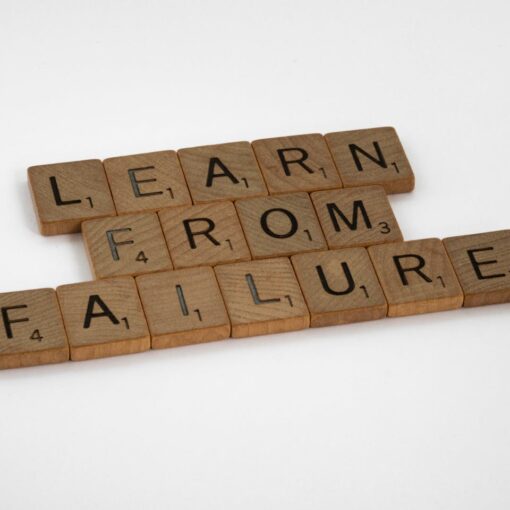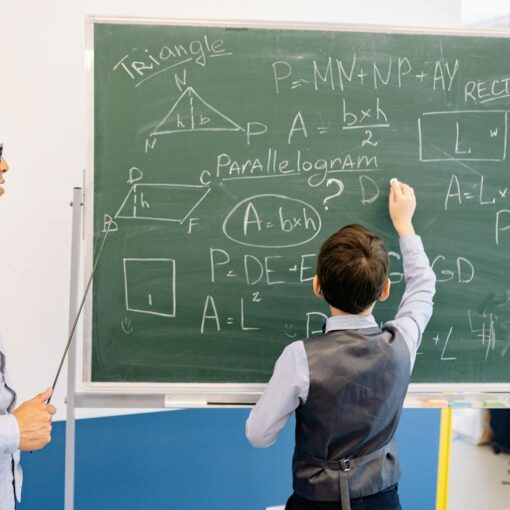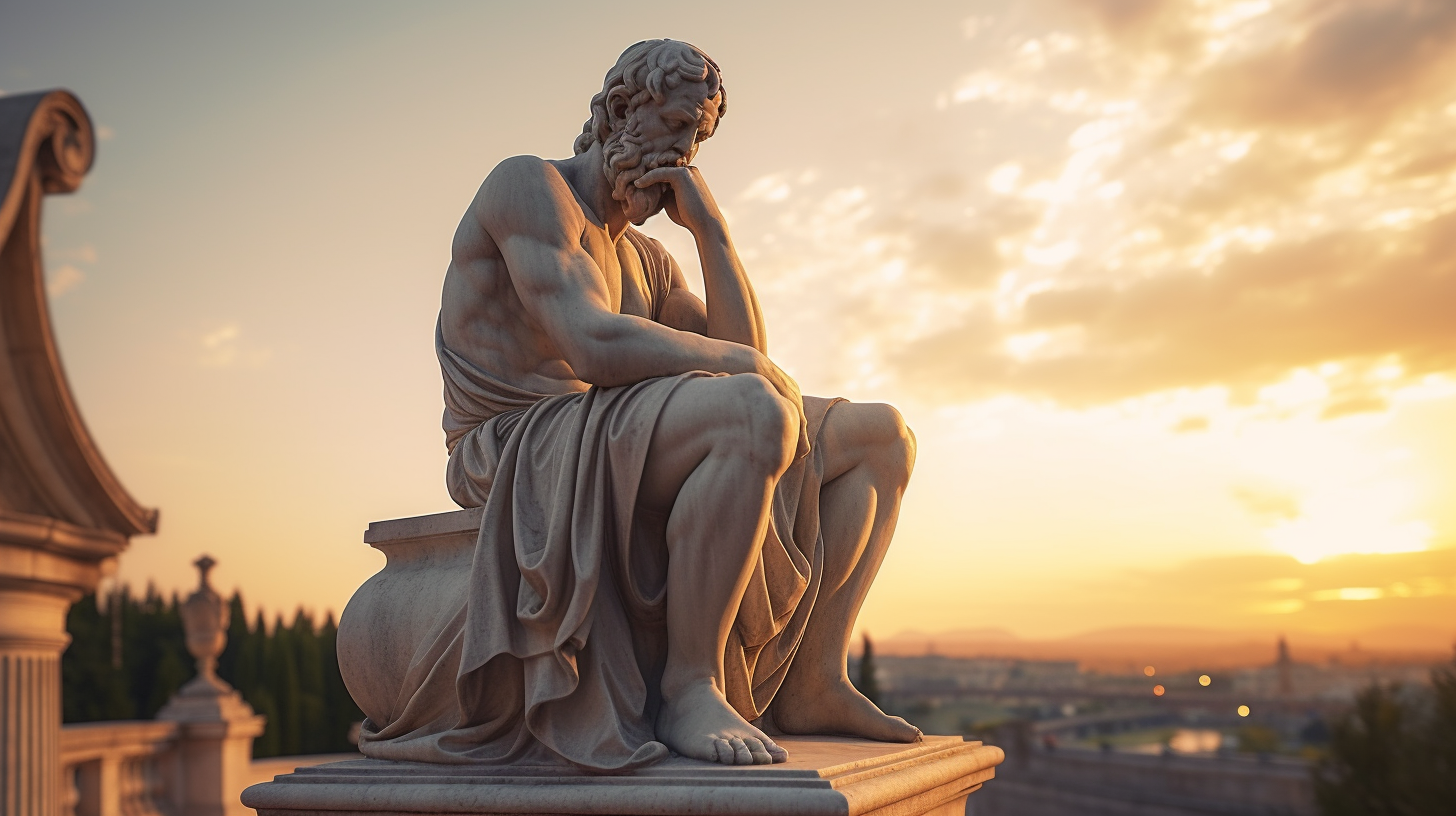
- Board Members
- Management Team
- Become a Contributor
- Volunteer Opportunities
- Code of Ethical Practices

KNOWLEDGE NETWORK
- Search Engines List
- Suggested Reading Library
- Web Directories
- Research Papers
- Industry News

- Become a Member
- Associate Membership
- Certified Membership
- Membership Application
- Corporate Application

- CIRS Certification Program
- CIRS Certification Objectives
- CIRS Certification Benefits
- CIRS Certification Exam
- Maintain Your Certification

- Upcoming Events
- Live Classes
- Classes Schedule
- Webinars Schedules

- Latest Articles
- Internet Research
- Search Techniques
- Research Methods
- Business Research
- Search Engines
- Research & Tools
- Investigative Research
- Internet Search
- Work from Home
- Internet Ethics
- Internet Privacy
The Role of the Study of Philosophy in Shaping Critical Thinking and Intellectual Inquiry

Philosophy is a kind of subject that can give your brain a serious workout, and here's why. Firstly, it deals with some pretty big, abstract questions: What's the meaning of life? Do we have free will? How do we determine what's right and wrong? These aren't easy questions with straightforward answers. They're complex and thought-provoking, and they often lead to more questions than answers. This can make philosophy challenging but also incredibly fascinating.
Then there's the language of philosophy. Philosophers have a way of using words that might seem unusual to most of us. They often use familiar words but with very specific, nuanced meanings that can be quite different from everyday usage. This specialized language can be tricky to get the hang of but is essential for conveying complex philosophical concepts.
Cultivating Critical Thinking Skills
Let's dive into philosophy's secret power: its ability to cultivate some serious critical thinking skills. You see, philosophy isn't just about pondering life's big questions - it's also about learning how to think deeply, critically, and analytically.
When you're studying philosophy, you're not just memorizing facts or learning procedures. You're engaging with:
- complex ideas
- evaluating arguments
- learning to see things from different perspectives.
This requires critical thinking - the ability to analyze information, assess its validity, and use it to form reasoned judgments.
Take a philosophy debate, for instance. You'll need to understand the different viewpoints, evaluate the evidence supporting each one, and come up with a reasoned response . This isn't about choosing sides or proving someone wrong, but about understanding the strengths and weaknesses of different arguments.
- analyzing information
- making logical connections
- forming reasoned conclusions.
But here's the real kicker: the critical thinking skills you develop through studying philosophy don't just stay in the classroom. They're transferable skills that can be incredibly valuable in other areas of your life, from making decisions to solving problems and even understanding other people's viewpoints.
So yes, philosophy might have a reputation for being abstract and complex, but it's also a powerful tool for cultivating critical thinking. It encourages us to question, analyze, and reason - and that's a skill set that can benefit us in many ways, both in the academic world and beyond.
Stimulating Intellectual Inquiry
You see, philosophy thrives on questions. Not just any old questions, but those really big, head-scratching ones. What is the nature of reality? How can we truly know anything? What is the meaning of life? These questions might not have easy or definite answers, but they prompt us to dig deep, to explore different ideas, and to think in new ways. That's intellectual inquiry at its finest!
Then there's the way philosophy encourages us to question our assumptions. We all have beliefs about the world, but philosophy pushes us to examine these beliefs critically. Why do we hold these beliefs? Are they justified? Could we be wrong? This kind of self-examination can be challenging, but it also fosters intellectual growth and self-awareness.
Moreover, philosophy promotes logical thinking. It teaches us:
- how to construct coherent arguments
- how to spot logical fallacies
- how to reason effectively.
These skills are essential for intellectual inquiry, helping us to navigate complex ideas and debates.
And finally, philosophy nurtures curiosity and wonder. It invites us:
- to marvel at the mysteries of the universe
- to ponder the complexities of existence
- to grapple with profound ethical dilemmas.
This sense of wonder and curiosity can fuel our intellectual journey, driving us to learn more, to question more, and to deepen our understanding.
Final Thoughts
Live classes schedule.
- JAN 04 CIRS Certification Internet Research Training Program Live Classes Online
World's leading professional association of Internet Research Specialists - We deliver Knowledge, Education, Training, and Certification in the field of Professional Online Research. The AOFIRS is considered a major contributor in improving Web Search Skills and recognizes Online Research work as a full-time occupation for those that use the Internet as their primary source of information.
Get Exclusive Research Tips in Your Inbox
- Privacy Policy
- Terms & Conditions
- Advertising Opportunities
- Knowledge Network
Quick links
- Make a Gift
- Directories
Why Study Philosophy?
What is philosophy, and why should i study it.
“Philosophy” comes from Greek words meaning “love of wisdom.” Philosophy uses the tools of logic and reason to analyze the ways in which humans experience the world. It teaches critical thinking, close reading, clear writing, and logical analysis; it uses these to understand the language we use to describe the world, and our place within it. Different areas of philosophy are distinguished by the questions they ask. Do our senses accurately describe reality? What makes wrong actions wrong? How should we live? These are philosophical questions, and philosophy teaches the ways in which we might begin to answer them.
Students who learn philosophy get a great many benefits from doing so. The tools taught by philosophy are of great use in further education, and in employment. Despite the seemingly abstract nature of the questions philosophers ask, the tools philosophy teaches tend to be highly sought-after by employers. Philosophy students learn how to write clearly, and to read closely, with a critical eye; they are taught to spot bad reasoning, and how to avoid it in their writing and in their work. It is therefore not surprising that philosophy students have historically scored more highly on tests like the LSAT and GRE, on average, than almost any other discipline. Many of our students combine studying philosophy with studying other disciplines.
The most important reason to study philosophy is that it is of enormous and enduring interest. All of us have to answer, for ourselves, the questions asked by philosophers. In this department, students can learn how to ask the questions well, and how we might begin to develop responses. Philosophy is important, but it is also enormously enjoyable, and our faculty contains many award-winning teachers who make the process of learning about philosophy fun. Our faculty are committed to a participatory style of teaching, in which students are provided with the tools and the opportunity to develop and express their own philosophical views.
Critical Thinking “It was in philosophy where I learned rigorous critical thinking, a skill that is invaluable when creating art.” - Donald Daedalus, BA ‘05, Visual Artist “Philosophy taught me to think critically and was the perfect major for law school, giving me an excellent start to law school and my career.” - Rod Nelson, BA ‘75, Lawyer
Tools for Assessing Ethical Issues “The courses I took for my minor in philosophy ... have provided a valuable framework for my career work in the field of global health and have given me a strong foundation for developing a structured, logical argument in various contexts.” - Aubrey Batchelor, Minor ‘09, Global Health Worker “Bioethics is an everyday part of medicine, and my philosophy degree has helped me to work through real-world patient issues and dilemmas.” - Teresa Lee, BA ‘08 Medical Student “The ability to apply an ethical framework to questions that have developed in my career, in taking care of patients ... has been a gift and something that I highly value.” - Natalie Nunes, BA ‘91, Family Physician Analytic Reasoning “... philosophy provided me with the analytical tools necessary to understand a variety of unconventional problems characteristic of the security environment of the last decade.” - Chris Grubb, BA ‘98, US Marine “Philosophy provides intellectual resources, critical and creative thinking capacity that are indispensable for success in contemporary international security environment “ - Richard Paz, BA ‘87, US Military Officer
Understanding Others’ Perspectives “... philosophy grounds us in an intellectual tradition larger than our own personal opinions. ... *making+ it is easier to be respectful of and accommodating to individual differences in clients (and colleagues)...” - Diane Fructher Strother, BA ‘00, Clinical Psychologist “... comprehensive exposure to numerous alternative world/ethical views has helped me with my daily interaction with all different types of people of ethnic, cultural, and political orientation backgrounds.” - David Prestin, BA ‘07, Engineer
Evaluating Information “Analyzing information and using it to form logical conclusions is a huge part of philosophy and was thus vital to my success in this position.” - Kevin Duchmann, BA ‘07, Inventory Control Analyst
Writing Skills “My philosophy degree has been incredibly important in developing my analytical and writing skills.” - Teresa Lee, BA ‘08, Medical Student
- YouTube
- Newsletter
- More ways to connect
Sapien Think
The role of philosophy in critical thinking and problem solving.

Philosophy, the study of fundamental questions about existence, knowledge, values, reason, and more, has long been regarded as a foundational discipline for critical thinking and problem solving. The practice of philosophy equips individuals with the tools needed to analyze complex ideas, engage in rigorous reasoning, challenge assumptions, and arrive at well-reasoned conclusions. In this article, we will explore the significant role that philosophy plays in enhancing critical thinking skills and problem-solving abilities.
Developing Analytical Skills
One of the central features of philosophy is its emphasis on analytical thinking. Philosophical inquiry involves breaking down complex concepts or arguments into their constituent parts, enabling individuals to critically examine each component and understand how they relate to the whole. This process trains individuals to analyze ideas, identify underlying assumptions, and evaluate the validity of arguments.
For instance, in formal logic, a branch of philosophy, individuals study deductive and inductive reasoning. They learn how to spot logical fallacies, identify valid and invalid arguments, and construct sound reasoning. These skills are essential for critical thinking as they enable individuals to assess the strength of an argument, identify flaws, and make well-supported judgments.
Developing Reasoning Skills
Philosophy also fosters the development of reasoning skills, which are crucial in critical thinking and problem solving. Through the study of philosophy, individuals learn how to engage in thoughtful, logical, and rational analysis of complex issues.
Philosophical inquiry encourages individuals to examine different perspectives and engage in rigorous debates. By considering diverse viewpoints, individuals are prompted to challenge their own assumptions and biases. This process of critical examination helps to refine reasoning skills and cultivate a more objective and well-rounded approach to problem solving.
Cultivating Open-mindedness and Intellectual Humility
Another important aspect of philosophy is its promotion of open-mindedness and intellectual humility. Philosophy teaches individuals to approach ideas with an open and unbiased mindset, willing to consider alternative viewpoints and entertain arguments that may challenge their preconceptions. This intellectual humility enables individuals to acknowledge the limitations of their own knowledge and be receptive to new ideas and perspectives.
By cultivating open-mindedness, individuals can foster a more inclusive and comprehensive understanding of complex problems. They become more adept at considering multiple perspectives, evaluating evidence from different disciplines, and navigating the nuances of complex issues. This multifaceted approach is invaluable in problem solving as it allows individuals to consider a wide range of possibilities and arrive at more holistic solutions.
Strengthening Ethical Reasoning
Ethics, a branch of philosophy, plays a significant role in critical thinking and problem solving. Ethics examines questions of morality, helping individuals to navigate ethical dilemmas, and make value-based judgments.
Studying ethics enhances critical thinking by encouraging individuals to consider the broader implications of their actions. They develop a framework for evaluating the ethical consequences of various choices, considering factors such as fairness, justice, and the well-being of others. This ethical reasoning enables individuals to make more informed and morally responsible decisions when confronted with complex problems.
Philosophy, with its focus on analytical thinking, reasoning skills, open-mindedness, intellectual humility, and ethical reasoning, is an invaluable discipline for enhancing critical thinking and problem-solving abilities. Through the rigorous study of philosophy, individuals develop the tools necessary to analyze complex ideas, challenge assumptions, and arrive at well-reasoned conclusions. By cultivating these skills, individuals become more effective critical thinkers and problem solvers capable of navigating complex issues with clarity, integrity, and holistic perspective.
- Fieser, J., & Dowden, B. (Eds.). (2020). The Internet Encyclopedia of Philosophy . Retrieved from https://www.iep.utm.edu/
- Paul, R., & Elder, L. (2006). Critical Thinking: The Nature of Critical and Creative Thought . Journal of Developmental Education, 30(2), 34-35. Retrieved from https://files.eric.ed.gov/fulltext/EJ844095.pdf
- Russo, N. F., & Epistemology, F. in. (1989). Developing Philosophical Thinking Skills in Learning Experiences . Theory Into Practice, 28(2), 102-105. doi:10.1080/00405848909543340
As an Amazon Associate Sapien Think earns from qualifying purchases.
A Deep Dive into Pragmatism: From Peirce to James
Solzhenitsyn and dostoevsky: how dostoevsky helped shape solzhenitsyn's thought, the order you should read neitzsche's books in.

Why Study Philosophy
Philosophy isn’t just an ancient study; it’s a vital tool for sharpening your mind and enhancing your interaction with the world. This post explains why studying philosophy is essential, whether aiming to boost your career, improve your decision-making skills, or better understand human thought and culture. You’ll learn how philosophy equips you with critical thinking skills, better communication abilities, and deep cultural insights—indispensable tools in any field today. Let’s get straight to why embracing philosophy could be one of your best decisions.
The Development of Critical Thinking Skills
Studying philosophy sharpens your ability to dissect and understand complex arguments, a skill pivotal in many aspects of daily life and work. This discipline trains you to question the ‘what’ and the deeper ‘why’ behind ideas, pushing you to develop logical reasoning grounded in thorough analysis. For instance, consider how a lawyer constructs a case: every argument must be logically sound and compelling to withstand scrutiny.
Similarly, politicians rely on their ability to argue convincingly and anticipate counterarguments to succeed in debates and policymaking. Moreover, executives use these critical thinking skills in the corporate world to evaluate the risks and benefits of strategic decisions, affecting everything from marketing strategies to financial planning.
This form of analytical training also aids in distinguishing subtle nuances in everyday decisions and communications, sharpening your ability to steer complex social and professional situations.
Enhancement of Problem-Solving Abilities
Philosophy teaches us to tackle complex problems by breaking them into smaller, more manageable parts. This method helps us approach challenges logically, making solutions more accessible to identify and implement. For a deeper insight of how philosophy enhances problem-solving, particularly in the realm of decision-making, you can read more about the relationship between decision-making and philosophy. This can provide valuable insights into how philosophical principles apply to everyday choices and challenges. Here’s how this skill applies in different areas:
- In Personal Life: Whether deciding on a career path or managing personal relationships, this approach helps you weigh various factors methodically, leading to more informed decisions.
- In Professional Settings: In business, for instance, managers use this technique to break down large projects into smaller tasks, making them more manageable and increasing the likelihood of success.
Philosophers often use thought experiments and Socratic questioning to challenge assumptions and analyze the consequences of decisions. This practice hones problem-solving skills and ensures that all outcomes are considered before action.
Improvement in Communication Skills
This science can significantly improve your communication skills. It teaches you how to express your thoughts clearly and logically and sound your arguments. This ability is crucial for effective debating and persuasive communication, especially in professions where you must negotiate or convince others.
For example, lawyers must present their cases clearly and persuasively to influence judges and juries. Similarly, you must articulate a product’s benefits to close deals in sales. Even in everyday professional interactions, being able to argue well and express your points clearly can set you apart as a leader and decision-maker. Philosophy arms you with these communication skills, making you more effective in any role that requires solid verbal interaction and persuasion.
Cultural Awareness and Ethical Insight
Philosophy is essential to study, whether you want to know about many cultural points of view or moral problems. It helps in these ways:
- Broadens Cultural Perspectives: Philosophy introduces you to ideas from around the world, helping you appreciate different ways of thinking and living. Whether it’s Eastern philosophies or Western thought, you get a clearer view of how diverse cultures tackle life’s big questions.
- Sharpens Ethical Reasoning: It challenges you to think deeply about right and wrong. By examining ethical issues that cut across cultures, you learn to consider various viewpoints and understand the complexities of moral decisions.
- Improves Global Competence: Awareness of and respecting cultural differences is crucial in a globalized world. Philosophy teaches you to steer these differences thoughtfully and ethically, making you more effective internationally.
Apprehending why study philosophy is vital to developing well-rounded and culturally informed individuals highlights this discipline’s enriching academic pursuits and increasing value in global professions that require cultural sensitivity and ethical decision-making.
Personal and Professional Advancement
Philosophy offers practical skills that enhance personal development and professional success across various fields. In the tech industry, philosophical training helps professionals tackle complex problems creatively, critical to driving innovation. Teachers can apply philosophical discussions to encourage critical thinking and moral reasoning.
The personal growth that comes from studying philosophy is just as valuable. It pushes you to reflect on your beliefs and values, leading to greater self-awareness and a thoughtful approach to life’s challenges. This kind of introspection is crucial for leaders in any field, as it promotes ethical decision-making and effective problem-solving. This science isn’t just academic—it’s a tool for building a more thoughtful, insightful approach to career challenges and life’s broader questions.
Historical Significance and Influence
The historical impact of thinkers like Socrates, Plato, and Aristotle stretches across science, politics, and art, shaping how we see the world today. Socrates introduced a method of questioning that revolutionized education and thinking. For centuries, Plato’s ideas about forms and justice have influenced political theories and legal systems. Aristotle’s contributions to logic and ethics laid the groundwork for scientific methods and moral discussions that are still relevant.
Their ideas have shaped societies and continue influencing current debates about morality, justice, and human rights. For instance, modern discussions about human rights often reference ancient debates about justice and the state’s role, tracing back to these early thinkers. Read more about the intersection of philosophy and reality to see how today’s world applies these philosophical concepts.

Studying philosophy is more than an academic exercise; it’s a practical tool that sharpens your mind and enriches your life. It teaches you to think critically, solve problems effectively, and communicate clearly—skills invaluable in any career and personal situation. Philosophy also deepens your knowledge of different cultures and ethical issues, preparing you to steer our diverse, globalized world.
By learning from thinkers like Socrates, Plato, and Aristotle, you apply ancient wisdom to modern challenges, making you more thoughtful and well-rounded. Whether aiming for professional growth or seeking to comprehend life’s big questions, philosophy offers essential insights and skills.
How to Learn Philosophy
Philosophy isn’t just an ancient study; it’s a vital tool for sharpening your mind and enhancing your interaction with the world. This post explains why studying philosophy is essential, whether aiming to boost your career, improve your decision-making skills, or better understand human thought and culture. You’ll learn how philosophy equips you with critical thinking …
How to Write a Philosophy Paper?

- Search Search Search …
- Search Search …
Philosophy Behind Critical Thinking: A Concise Overview

The philosophy behind critical thinking delves into the deeper understanding of what it means to think critically and to develop the ability to reason, analyze, and evaluate information in a structured and systematic manner. Critical thinking has intricate connections with philosophy, mainly because it originated from ancient philosophical teachings. At its core, the concept of critical thinking is rooted in the Socratic method of questioning, which emphasizes the importance of inquiry and rational thinking as a means to achieve knowledge.

Understanding critical thinking necessitates exploring the various philosophical groundings, which delves into epistemology, the branch of philosophy that deals with knowledge, truth, and belief. Epistemological theories help elucidate different approaches to critical thinking , such as the psychological approach, focusing on cognitive processes, and the cultural and social context approach, emphasizing the importance of context in shaping critical thought. In the realm of education, the role of critical thinking cannot be understated, as it is a vital component of teaching and learning, shaping the way individuals process and interpret information and develop intellectually.
Key Takeaways
- Critical thinking is deeply rooted in ancient philosophical teachings, particularly the Socratic method of questioning.
- Different philosophical groundings provide varying approaches to critical thinking, such as psychological and cultural/social context approaches.
- The importance of critical thinking in education is paramount, as it shapes how individuals process, interpret, and develop intellectually.
Understanding Critical Thinking
Definition and process.
Critical thinking is the ability to think clearly and rationally about what to do or what to believe. It involves engaging in reflective and independent thinking . To understand the logical connections between ideas, one needs to identify, construct, and evaluate arguments.
Logic, Reason, Rationality
Logic, reason, and rationality are essential components of critical thinking. Logic refers to the systematic approach to reasoning and validating claims through principles and rules. Reasoning, on the other hand, is the process of drawing conclusions based on logic, evidence, and assumptions. Rationality encompasses the use of logic and reason to make well-informed decisions, judgments, and evaluations.
Strategies and Patterns
To develop critical thinking skills , individuals must employ various strategies and recognize patterns in their thinking. Some common strategies include:
- Analysis : Breaking down complex problems, data, or texts into simpler parts to understand what they mean and explain the implications to others.
- Interpretation : Making sense of information and grasping its relevance in a given context.
- Inference : Drawing reasonable conclusions based on available evidence and logic.
- Evaluation : Assessing the credibility and validity of claims, arguments, or sources of information.
Recognizing patterns in thinking involves identifying common errors, biases, and other factors that might hinder critical thinking and refining one’s thought process accordingly.
Justification and Argumentation
Justification and argumentation play a crucial role in critical thinking . Justification refers to providing reasons or evidence in support of a claim, while argumentation involves constructing and evaluating arguments . Both justification and argumentation require logical reasoning, analysis of evidence, and clear communication of ideas.
Clarity and Reflection
Clarity is essential for effective critical thinking. This entails expressing ideas and arguments in a clear, concise, and organized manner. Furthermore, critical thinkers must also engage in reflection — the process of examining their own thought processes, assumptions, and biases. Reflecting on one’s beliefs and values helps individuals refine their thinking and develop a more nuanced understanding of the world around them.
In conclusion, understanding critical thinking involves exploring its definition, process, and key components, such as logic, reason, rationality, strategies, patterns, justification, argumentation, clarity, and reflection. By cultivating a strong foundation in these areas, individuals can develop their ability to think critically and make well-informed decisions in various aspects of life.
Psychological Approach to Critical Thinking

Cognition and Pattern Recognition
The psychological approach to critical thinking emphasizes the role of cognition and pattern recognition in the process. Cognitive psychologists recognize that our minds have a natural ability to identify patterns and relationships in the information we encounter. This involves categorizing, comparing, and evaluating various pieces of information. By developing cognitive skills, individuals can more effectively analyze and evaluate complex arguments, ultimately fostering their critical thinking abilities.
Bias and Judgments
Another aspect of the psychological approach to critical thinking is the examination of biases and judgments. Bias refers to the systematic errors or distortions in human reasoning that can arise from emotions, beliefs, or external factors. When individuals possess a strong bias, it can impede their ability to think critically and accurately evaluate information. By being aware of these biases and actively seeking to minimize their influence, one can improve their critical thinking skills and make more accurate judgments.
Problem-Solving and Decision-Making
Finally, the psychological approach to critical thinking also emphasizes the importance of problem-solving and decision-making abilities. Effective problem-solving is accomplished by identifying the problem, gathering and evaluating relevant information, and formulating potential solutions. Strong decision-making skills involve comparing potential solutions and selecting the most effective one based on logical reasoning and evidence.
In conclusion, the psychological approach to critical thinking focuses on fostering cognitive skills, identifying and minimizing biases, and developing strong problem-solving and decision-making abilities. By enhancing these aspects, individuals can become more effective critical thinkers and make well-informed decisions throughout their lives.
Philosophical Groundings
Roots of critical thought.
The roots of critical thought can be traced back to ancient Greek philosophy , particularly the ideas developed by Socrates, Plato, and Aristotle. In their teachings, these philosophers emphasized the importance of questioning and examining beliefs, seeking evidence, and evaluating arguments logically. Through these pursuits, they laid a strong foundation for the development of critical thinking in modern times.
Major Philosophers and Approaches
Several major philosophers and their approaches have significantly contributed to the evolution of critical thinking. Among them, Socrates’ method of inquiry, known as the Socratic Method, involves continuous questioning and probing for deeper understanding. Plato, a student of Socrates, focused on the power of dialectical reasoning, urging individuals to engage in dialogue and debate to examine their own beliefs and the beliefs of others.
Aristotle contributed to critical thinking by emphasizing the importance of logic and coherent reasoning to gain knowledge. He also explored rhetoric, expounding on its role in persuasive argumentation. In more recent times, figures such as John Dewey and Karl Marx have provided insights into the role of critical thinking in education and social transformation.
Informal Logic and its Importance
Informal logic plays a crucial role in critical thinking as it concerns the principles and methods used to analyze everyday arguments and reasoning beyond the scope of formal logic. It complements formal logic, which deals strictly with logical systems and symbols. Informal logic helps individuals assess the validity, soundness, and context of arguments encountered in daily life. By honing their skills in informal logic, individuals can become better critical thinkers and more adept at navigating complex situations and decision-making processes.
Through the teachings of philosophers like Plato, Aristotle, and Socrates, as well as the application of informal logic and logical reasoning, the concept of critical thinking has evolved into an essential aspect of learning and decision-making in modern society. Embracing these foundational elements can empower individuals to develop the skills necessary to think critically and effectively in various aspects of life.
Critical Thinking in Cultural and Social Context
Race and gender perspectives.
Critical thinking is a universal skill that transcends cultural and social boundaries. However, it is essential to consider the impact of race and gender on the development and exercise of critical thinking skills . People from marginalized groups may experience unique challenges and perspectives that influence their critical thinking abilities. For example, in a cross-cultural study examining critical thinking among nurse scholars in Thailand and the United States, distinctive perspectives on critical thinking were observed due to cultural differences. Understanding the intersections of race, gender, and critical thinking can help create more inclusive education and workplace environments that foster critical thinking for everyone.
Critical Thinking in a Democratic Society
In a democratic society, critical thinking plays a crucial role in informed decision-making, civic engagement, and open discussion. The healthy functioning of a democracy relies on the citizens’ capacity to discern reliable information, assess arguments, and make rational choices. According to the Stanford Encyclopedia of Philosophy , critical thinking includes abilities and dispositions that lead individuals to think critically when appropriate. Developing these skills allows members of democratic societies to engage in productive debates, evaluate policies, and hold leaders accountable.

Culture, Society, and Critical Thinking
Cultural backgrounds and societal norms can significantly impact how individuals approach critical thinking. Different cultures may emphasize various ways of thinking, problem-solving, and expressing ideas. As a result, critical thinking can manifest differently across cultures, often influenced by aspects such as language, traditions, and values. A study discussing critical thinking in its historical and social contexts highlights the importance of considering cultural influences when evaluating and teaching critical thinking.
In summary, critical thinking is an essential skill across various cultural, racial, gender, and social contexts. By acknowledging these differences and understanding the significance of critical thinking in democratic societies, educators and societies can promote a more inclusive environment for cultivating critical thinking skills .
Role of Critical Thinking in Education
Aims of education.
The primary aim of education is to foster the development of individuals’ cognitive capabilities, empowering them to grow into confident, knowledgeable and discerning adults. Critical thinking plays a significant role in education as it helps students acquire and apply knowledge more effectively, by analyzing, evaluating, and synthesizing information from diverse sources in a systematic manner, leading to more accurate and informed decisions.
In addition, critical thinking allows students to question existing knowledge and challenge conventional wisdom, thus avoiding indoctrination and promoting intellectual independence. This helps in nurturing open-minded and critical citizens who can contribute positively to society.
Skills Development
Critical thinking involves a variety of skills and abilities that are essential for students’ personal and professional success. These include problem-solving, decision making, logical reasoning, and effective communication, among others. By teaching these skills in the classroom, educators enable learners to confront complex issues and dilemmas with confidence and clarity, fostering their cognitive, social, and emotional growth.
Classroom activities focused on critical thinking are essential to help students develop a systematic approach to problem-solving and sharpen their analytical skills. Practical tasks, like debates, group discussions, case studies, or role plays, can be employed to engage students in active learning, thus enhancing their critical thought processes.
Standardized Tests vs. Critical Thought
While standardized tests have dominated the contemporary education system, there is growing concern regarding their effectiveness in promoting critical thinking. Some argue that standardized tests prioritize the acquisition of specific knowledge over the development of essential skills and abilities, leading to an education that is more focused on rote memorization than meaningful learning.
However, introducing critical thinking elements in the curriculum or classroom activities does not require a complete removal of standardized tests. Educators can strike a balance between knowledge acquisition and skill development by incorporating critical thinking exercises in conjunction with traditional assessments. In doing so, students can better prepare for life beyond the classroom, developing a mindset that values continuous learning, reflection, and intellectual curiosity.
Importance of Open-Mindedness and Skepticism
Being skeptical vs. being cynical.
It is essential to understand the difference between being skeptical and being cynical. Skepticism in critical thinking involves questioning assertions and assumptions, seeking evidence, and evaluating arguments from a neutral, objective viewpoint. On the other hand, cynicism is a distrustful attitude, where one assumes negative intentions or outcomes.
A critical thinker should strive to be skeptical rather than cynical. Approaching situations with skepticism allows for the exploration of different viewpoints and the willingness to change one’s mind based on new evidence, while cynicism can lead to the dismissal of valid arguments due to preconceived negative beliefs.
Traits of an Open-Minded Thinker
Open-mindedness is an essential trait for critical thinkers. Some key characteristics of an open-minded thinker include:
- Cognitive flexibility : Adapting to and considering new information or perspectives.
- Tolerance for ambiguity : Accepting the possibility that there may be multiple valid solutions or interpretations.
- Willingness to change : Being open to revising beliefs and opinions when presented with strong evidence or arguments.
Being open-minded allows critical thinkers to explore various perspectives and ideas and to evaluate them fairly. This inclination towards cognitive flexibility helps in avoiding rigidity in thinking, enabling better decision-making and problem-solving.
Role of Curiosity and Empathy in Critical Thinking
Curiosity and empathy play crucial roles in effective critical thinking. A curious individual seeks knowledge and understanding, thus asking relevant questions and engaging in Socratic questioning. Socratic questioning is a method of probing and analyzing through questions to encourage self-reflection and deeper understanding. This technique fosters critical thinking by challenging assumptions and providing opportunities to explore diverse viewpoints.
Empathy, on the other hand, permits critical thinkers to comprehend and appreciate different perspectives by placing themselves in others’ shoes. An empathetic approach contributes to open-mindedness and cultivates a sense of humility, recognizing that individuals may hold contrasting opinions based on personal experiences or beliefs. The combination of curiosity and empathy enhances critical thinking by promoting a more inclusive and nuanced understanding of complex issues and scenarios.
In the realm of philosophy, critical thinking holds a prominent position. It is a process that revolves around using and assessing reasons to evaluate statements, assumptions, and arguments in ordinary situations. The ultimate goal of critical thinking is to foster good beliefs, aligning them with goals such as truth, usefulness, and rationality 1 .
John Dewey played a crucial role in shaping the concept of critical thinking by introducing it as an educational goal 2 . He connected it with a scientific attitude of mind, highlighting the importance of reflective thought in the process of critical thinking. This approach enhances one’s ability to understand and analyze situations, leading to informed and rational decisions.
Critical thinking equips individuals with the tools necessary to think carefully with clarity, depth, precision, accuracy, and logic 3 . It has applications across various domains, such as science, where great scientists like Albert Einstein have benefited from critical thinking skills to discover groundbreaking concepts.
In conclusion, the philosophy behind critical thinking emphasizes the importance of cultivating a rational and reflective mindset. As an essential skill for problem-solving and decision-making, critical thinking plays a vital role in developing well-rounded individuals ready to navigate the complexities of the world.
- Internet Encyclopedia of Philosophy ↩
- Stanford Encyclopedia of Philosophy ↩
- SlideShare ↩
You may also like

Best Careers for Problem Solving: Top Opportunities for Critical Thinkers
Problem-solving is a highly sought-after skill in today’s job market, as it plays a critical role in finding solutions to complex problems […]

Critical Thinking for Strategic Intelligence: A Comprehensive Guide
Critical thinking for strategic intelligence is an essential skill set for analysts and decision-makers in various industries, particularly within the realms of […]

10 Common Critical Thinking Mistakes and How to Avoid Them: Key Strategies for Better Decision Making
Critical thinking is essential in making effective decisions and solving complex problems. Yet, even the most logical minds can fall prey to […]

5 Critical Thinking Techniques for Better Problem-Solving in Everyday Life
Critical thinking skills are essential for effective problem-solving in both personal and professional settings. They enable individuals to analyze situations, consider various […]

The Role of Philosophy in Critical Thinking and Problem-Solving
Philosophy guides critical thinking and problem-solving, encouraging rigorous analysis, logical reasoning, and the exploration of diverse perspectives to unravel complex issues and arrive at well-grounded conclusions.

In an era dominated by fleeting attention spans and an overabundance of information, cultivating critical thinking and problem-solving skills cannot be overstated. However, in our haste to seek immediate solutions, we often neglect the indispensable tool that has guided human thought for centuries: philosophy. Today, I endeavor to challenge conventional wisdom and explore philosophy's profound role in shaping our intellectual landscape, enhancing our ability to think critically, and offering invaluable insights into problem-solving. By delving into the annals of history, employing sharp wit, and embracing intellectual rigor, we can reestablish philosophy as an indispensable discipline for a discerning mind.

The Antiquity of Philosophical Inquiry:
We must first acknowledge its historical significance to appreciate philosophy's role in critical thinking and problem-solving. Philosophy, birthed in ancient Greece, was the bedrock upon which Western thought was built. The likes of Socrates, Plato, and Aristotle infused the discipline with a relentless pursuit of truth, utilizing critical thinking to question the status quo and expose fallacies. Moreover, their philosophical methodologies were the foundation for other knowledge domains, including science, politics, and ethics.
The Socratic Method: Unveiling Truth Through Inquiry:
At the heart of philosophy lies the Socratic method—a powerful tool designed to challenge assumptions, question preconceived notions, and foster critical thinking. Socrates, the luminary who met an untimely demise for his audacity, demonstrated the profound impact of inquiry in unravelling truth. He dismantled conventional wisdom by engaging in rigorous dialogue, exposing its underlying contradictions and weaknesses. Through this dialectical process, critical thinking flourished, paving the way for greater intellectual depth and clarity.
Philosophy as the Progenitor of Scientific Inquiry:
Contrary to popular belief, the relationship between philosophy and science is not one of disjointed adversaries. Instead, philosophy provided the fertile ground from which the scientific method emerged. Renowned thinkers such as Francis Bacon and René Descartes, both philosophers and scientists, recognized the importance of critical thinking in pursuing empirical knowledge. Their skepticism and commitment to rational inquiry laid the groundwork for the systematic and evidence-based approach that underpins scientific discoveries today.

Ethical Dilemmas and Philosophical Solutions:
In the realm of ethics, philosophy remains an indispensable guide for navigating complex moral landscapes. As dilemmas arise and societal norms evolve, critical thinking fortified by philosophical insights allows us to evaluate competing moral theories and navigate the intricacies of moral decision-making. From utilitarianism to deontology, philosophy offers a pantheon of ethical frameworks that aid in solving moral problems and foster a more nuanced understanding of human behavior.
Problem-Solving and the Philosophy of Logic:
Critical thinking, at its core, requires proficiency in logical reasoning. With its rigorous study of logic, philosophy equips individuals with the tools to dissect and analyze problems methodically. By employing deductive and inductive reasoning, philosophy trains the mind to identify fallacies, challenge assumptions, and construct persuasive arguments. As Bertrand Russell once proclaimed, "Logic and mathematics are nothing if not an exercise in clarity."
The Perils of a Philosophy-less Society:
In a world that exalts instant gratification and facile solutions, the marginalization of philosophy undermines our intellectual development. Without the discipline of critical thinking fostered by philosophy, we risk becoming passive recipients of information, susceptible to manipulation, and unable to discern the truth from falsehood. The erosion of philosophy from our educational institutions and public discourse has dire consequences for the vitality of our democracy and the pursuit of a well-informed citizenry.

Conclusion:
Philosophy, often maligned as an esoteric pursuit detached from practicality, must reclaim its rightful place as a linchpin of critical thinking and problem-solving. We can harness philosophy's transformative potential by embracing its historical lineage, leveraging the power of the Socratic method, recognizing its contributions to scientific inquiry and ethical deliberation, and appreciating its emphasis on logical reasoning. Let us rekindle the spirit of intellectual rigour, for in doing so, we equip ourselves with the indispensable tools needed to navigate an ever-complex world, challenge dogmas, and unravel the enigma of truth. As philosopher Ludwig Wittgenstein so aptly observed, "Philosophy is a battle against the bewitchment of our intelligence using language."

Plato Re-Imagined
This course offers 32 comprehensive lectures exploring most of Plato's dialogues. These lectures guide students toward a consilient understanding of the divine—a concept that harmonizes knowledge across disciplines and resonates with secular and religious leaders. As a bonus, Lecture #33 focuses on consilience, demonstrating how different fields of knowledge can converge to form a unified understanding.
You might also like

The Moral Responsibility in Mary Shelley's 'Frankenstein'

The Evolution of Consumer Behavior: From Impulse Buying to Conscious Consumption

The Wisdom of Ancient Greece: Timeless Insights for Modern Life

The Stoic Ideal: Navigating Life's Challenges with Inner Resilience

The Philosophy of Happiness: Ancient and Contemporary Approaches
Popular tags.
The service you are accessing is either under high load or has detected unusual activity from your network location.
To protect this service from abuse please complete the challenge below to continue.
What code is in the image? submit
Your unique support ID for this request is: 96619579363493532.
If you see this challenge frequently or believe you are seeing it in error please record this ID and contact the Deakin University IT Service Desk . Additional information is available from the IT Knowledge Base .
Why is Philosophy Important? Here Are 4 Reasons
Philosophy is one of the oldest fields of study in the world and one that many keep turning to. Why is philosophy important, and why is it relevant today?

Page Content
This article was written based on our interviews with 4 philosophy graduates.
-----------------
What is philosophy?
Philosophy is the study of existence, knowledge, values, reason, mind, and language. In other words, it's the academic exploration of life's big questions. It's a discipline that can be applied to any field or subject and helps develop critical thinking skills.
Philosophy is one of the oldest disciplines in the world , and its history can be traced back to ancient Greece. Plato and Aristotle's works, some of the earliest philosophers, are still studied and read today .
Philosophy has had a s ignificant impact on many areas of life and professions including the arts, science and politics.
1. Philosophy teaches valuable transferrable skills
Philosophy teaches critical thinking by encouraging students to question everything they are taught. Students are encouraged to develop their own beliefs and to think for themselves.
This is a valuable skill, particularly in a world where it's becoming increasingly difficult to tell fact from fiction.
Philosophy also teaches students how to argue effectively. This is important, as it allows students to defend their beliefs against opposing arguments and helps them better understand other people's views.
According to a 2022 report by Data USA , numerous skills make philosophy graduates stand out from their peers. Some of the highest-value skills grads take with them include , but are not limited to:
- Writing skills
- Reading comprehension
- Active learning
- Instruction
- Critical thinking
- Complex problem solving
- Social perceptiveness

2. Philosophy helps you understand yourself
One of the main benefits of studying philosophy is that it teaches us how to question our assumptions and beliefs .
Many take certain things for granted without questioning why we believe them. By exploring how thoughts and beliefs are formed and how this has evolved throughout history, we can begin to understand our frame of beliefs.
As Emil Magnusson of Stockholm University put it:
"As abstract as philosophy may sound it really is not. Philosophy will help you question, find answers to, and expand your idea of your world. States of the world that you (and almost everyone else) take for granted are not as obvious when you dive deeper into it. All in all, I think it helps you think outside of the box and not make you stuck in the same patterns as the rest."
Philosophy can also provide a framework for making ethical decisions and for exploring important questions about life and death, meaning, and purpose. By studying philosophy, students can develop their reasoning and abstract thinking skills, which are essential for success in any field.
Rebecca Newberger Goldstein, a professor in Philosophy and the author of Plato at the Googleplex , points out in her interview with The Atlantic :
"It’s always a good thing to know, no matter what you go on to study—to be able to think critically. To challenge your own point of view. Also, you need to be a citizen in this world. You need to know your responsibilities. You’re going to have many moral choices every day of your life. And it enriches your inner life."
Inspired to study Philosophy?
Browse hundreds of philosophy programs worldwide, 3. philosophy is important for business.
Philosophy is a great way of looking at problems that could affect companies down the line , such as:
- Ethical issues like corporate citizenship or unfair labor practices
- Questions regarding technology , such as whether automation should be allowed since it can replace human workers so much more easily than before
As the growth in machine learning and AI continues, we're seeing increasing concern about the role and ethics of technology usage —the core of philosophy's teachings.
Therefore, fields like AI ethics and copyright law are expected to grow in the following decade.
What's more, philosophy fits well even in traditional business. As Frankfurt School of Finance & Management professor of philosophy Christine Tiefensee explains :
"You will need to see quickly through complex issues, put together convincing arguments for or against given proposals, filter relevant from irrelevant information, check the consistency and soundness of policy papers, decide which problems are crucial and identify the issues that are still badly understood. These skills of rigorous analysis, sound argument and critical examination are the bread-and-butter of philosophy : no subject trains our ability for consistent, systematic thought better than philosophy.”
Philosophy graduates take many transferrable skills with them, allowing them to work in various fields. The image below shows a breakdown of the most common jobs for philosophy graduates :

4. Science can’t answer all questions
Science is one of the most important components in our lives today. We rely heavily on it for both personal and professional reasons. However, science can't tell us what makes something right or wrong. As Blogger David Calhoun puts it:
“At its core, philosophy is a striving towards figuring out what is true and worthwhile, and what it means to live a meaningful and worthwhile life. That’s something off-limits for science, because science can tell us how things are empirically, but it can’t prescribe how we should then live. [...] In short: science helps us live longer, whereas philosophy helps us live better.”

So, why is Philosophy important? Philosophy does not just stand to change the world; it might just change the course of your life. It's a subject with extraordinary staying power and potential.
While Plato and Aristotle are often credited with shaping future civilizations, and their influence is still felt today , Publishers Weekly insists, “The ancient Greek philosophers Plato and Aristotle may seem like the quintessential Dead White Males, but in fact they are very much alive. Twenty-four centuries ago, they laid the foundations of Western culture, and their ideas and insights still dictate essential features of our world right now, from what we eat to what we see on the internet.”
Students interested in studying philosophy often choose to study a traditional four-year bachelor's degree . With a degree in philosophy, you'll be prepared to tackle any challenge life throws your way.
Read more about philosophy:
- Top Careers for Philosophy Students
- Why study for a Bachelor's degree in the Humanities?
- The Ultimate Bachelor's Degree Guide for International Students
This article was updated on July 22, 2024

Keystone Team Author
The Keystone Team is comprised of experienced educators and advisors dedicated to providing valuable resources and advice to students all over the world.
Find a program in these categories
- Liberal Arts
- Humanities Studies
Read related articles

Are International Students Immigrants? The Debate Explained
September 2023 Education Study Abroad Visa International News

Six Things All International Students Should Do Before Traveling
September 2023 Education Study Abroad Student Tips Visa

Why You Should Befriend International Students
September 2023 Education Study Abroad Student Tips International News

IMAGES
VIDEO
COMMENTS
But here's the real kicker: the critical thinking skills you develop through studying philosophy don't just stay in the classroom. They're transferable skills that can be incredibly valuable in other areas of your life, from making decisions to solving problems and even understanding other people's viewpoints.
What is Philosophy, and Why Should I Study It? "Philosophy" comes from Greek words meaning "love of wisdom." Philosophy uses the tools of logic and reason to analyze the ways in which humans experience the world. It teaches critical thinking, close reading, clear writing, and logical analysis; it uses these to understand the language we use to describe the world, and our place within it.
Philosophy, the study of fundamental questions about existence, knowledge, values, reason, and more, has long been regarded as a foundational discipline for critical thinking and problem solving. The practice of philosophy equips individuals with the tools needed to analyze complex ideas, engage in rigorous reasoning, challenge assumptions, and ...
The Development of Critical Thinking Skills Studying philosophy sharpens your ability to dissect and understand complex arguments, a skill pivotal in many aspects of daily life and work. This discipline trains you to question the 'what' and the deeper 'why' behind ideas, pushing you to develop logical reasoning grounded in thorough ...
In the realm of philosophy, critical thinking holds a prominent position. It is a process that revolves around using and assessing reasons to evaluate statements, assumptions, and arguments in ordinary situations. The ultimate goal of critical thinking is to foster good beliefs, aligning them with goals such as truth, usefulness, and rationality 1.
Philosophy, often maligned as an esoteric pursuit detached from practicality, must reclaim its rightful place as a linchpin of critical thinking and problem-solving. We can harness philosophy's transformative potential by embracing its historical lineage, leveraging the power of the Socratic method, recognizing its contributions to scientific ...
'A lot of students are initially a little surprised that when we study philosophy, we want to know what you think. We want you to articulate your own view as a philosopher and, crucially, we also expect you to be able to defend that view and to argue for your position. 'You come into the classroom as a philosopher, pretty much from day one.'
Philosophy makes a central contribution to the educational enterprise through its demands upon intellectual activity. Education in philosophy involves becoming aware of major figures and developments in the history of philosophy, learning up-to-date techniques and accepted answers to philosophical questions, and learning critical, interpretive, and evaluative skills that, in the overall scheme ...
Philosophy teaches critical thinking by encouraging students to question everything they are taught. Students are encouraged to develop their own beliefs and to think for themselves. This is a valuable skill, particularly in a world where it's becoming increasingly difficult to tell fact from fiction.
Studying philosophy not only involves asking the big questions - it also teaches important critical thinking skills as you work to find the answers. Associate Professor Stokes says seminar teaching is one of the most important modes of learning in philosophy because it's an opportunity for students to debate, argue and workshop ideas.